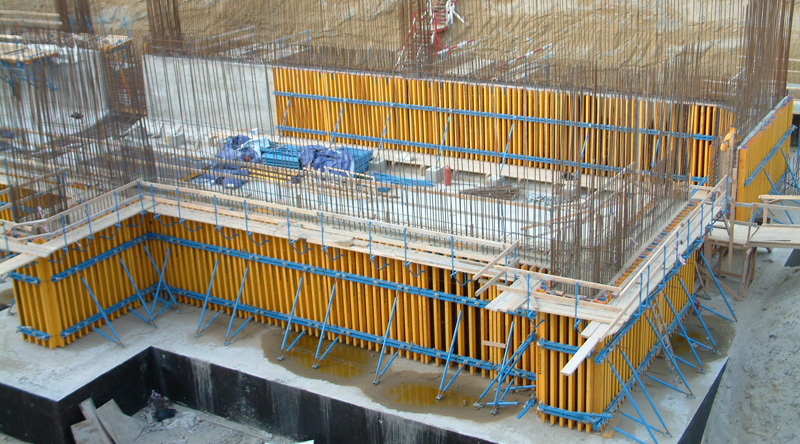Nov . 27, 2024 05:13 Back to list
Permanent Formwork Slab Production Facility Design and Manufacturing Solutions
The Rise of Permanent Formwork Slab Factories A Comprehensive Overview
In recent years, the construction industry has witnessed a significant transformation driven by the demand for sustainable and efficient building methods. Among the innovations that have emerged, Permanent Formwork Slab (PFS) systems stand out as a revolutionary solution for enhancing structural integrity while expediting construction timelines. This article explores the fundamentals of permanent formwork slab technology, its benefits, production processes, and future trends shaping its growth in the construction sector.
Understanding Permanent Formwork
Permanent formwork refers to a construction technique where formwork materials are left in place after the concrete has cured, effectively becoming part of the structure. Traditional formwork is typically removed once the concrete sets, necessitating additional labor and materials. In contrast, PFS involves using pre-fabricated materials such as polymer or concrete mixture that provide both support during construction and longevity after the slab has set. This innovative approach not only minimizes waste but also enhances thermal and acoustic insulation in buildings.
Benefits of Permanent Formwork
1. Time Efficiency One of the most significant advantages of permanent formwork is the reduction in construction time. With traditional formwork, labor-intensive processes for setting up and dismantling forms can extend project timelines. Permanent formwork eliminates this delay, allowing construction teams to move on to subsequent phases of a project more quickly.
2. Cost-Effectiveness Although the initial investment in permanent formwork systems may be higher, the total cost of a project often decreases due to savings on labor, materials, and time. Additionally, fewer resources are required for repeated formwork setups, significantly lowering overall expenditure.
3. Durability and Strength PFS systems are designed to withstand environmental stresses, making them ideal for a variety of climates. The materials used are engineered to be robust and long-lasting, potentially leading to structures that require less maintenance over their lifetime.
4. Sustainability As the construction industry shifts towards more environmentally friendly practices, permanent formwork represents a more sustainable option. By reducing waste and utilizing materials that can improve energy efficiency in buildings, PFS contributes to a lower carbon footprint.
5. Versatility Permanent formwork systems can be adapted for various building types and designs. From residential homes to commercial buildings and industrial facilities, PFS offers flexible solutions that cater to diverse architectural requirements.
The Production Process
permanent formwork slab factory

The production of permanent formwork involves several key stages
1. Design and Engineering Before manufacturing begins, a detailed design process ensures that the permanent formwork system meets the specific needs of a project. This includes calculations for load-bearing capacity, insulation properties, and resistance to environmental factors.
2. Material Selection Different materials, such as high-strength polymers, expanded polystyrene, or precast concrete, are chosen based on their properties that align with the project's requirements. The selection process takes into account factors like cost, weight, and thermal efficiency.
3. Manufacturing State-of-the-art factories equipped with advanced machinery and technology produce permanent formwork components. Automated processes streamline production, ensuring high-quality outputs and reducing manufacturing time.
4. Transportation and Installation Once fabricated, the components are transported to the construction site where they are assembled. The installation of permanent formwork integrates smoothly with the pouring of concrete, providing immediate support without delay.
Future Trends
The future of permanent formwork slab factories is promising, with several trends indicating substantial growth in this sector. With increasing global awareness of sustainability, more construction companies are likely to adopt PFS systems to meet regulations and client demands for green building practices. Additionally, advancements in materials science and manufacturing technologies will further enhance the capabilities and efficiency of permanent formwork solutions.
Moreover, the integration of digital technology in both design and production processes—such as Building Information Modeling (BIM) and automation—will streamline operations, reduce errors, and facilitate better project management.
Conclusion
Permanent formwork slab factories are at the forefront of modern construction innovation, providing effective solutions that are both economical and environmentally friendly. As the industry continues to evolve, embracing these cutting-edge technologies will not only address immediate construction challenges but also contribute to the long-term sustainability of the built environment. As we look to the future, it is clear that the adoption of permanent formwork systems is poised to revolutionize the way we approach construction, making it quicker, more cost-effective, and more sustainable.
-
High-Quality U Head Jack Scaffolding – Reliable Scaffolding Jack Head Manufacturer & Factory
NewsJul.08,2025
-
High-Quality I Beam H20 Leading Timber Beam H20 Material Factory, Exporters & Manufacturers
NewsJul.08,2025
-
High-Quality Powder Coating Steel Formwork - Durable & Corrosion Resistant Solutions
NewsJul.07,2025
-
Inclined Column Formwork Supplier – Durable & Precise Solutions for Unique Structures
NewsJul.07,2025
-
High-Quality Water Stop Solutions Trusted Water Stop Company & Suppliers
NewsJul.07,2025
-
High-Quality Formwork Material Supplier Reliable Manufacturer & Factory Solutions
NewsJul.06,2025